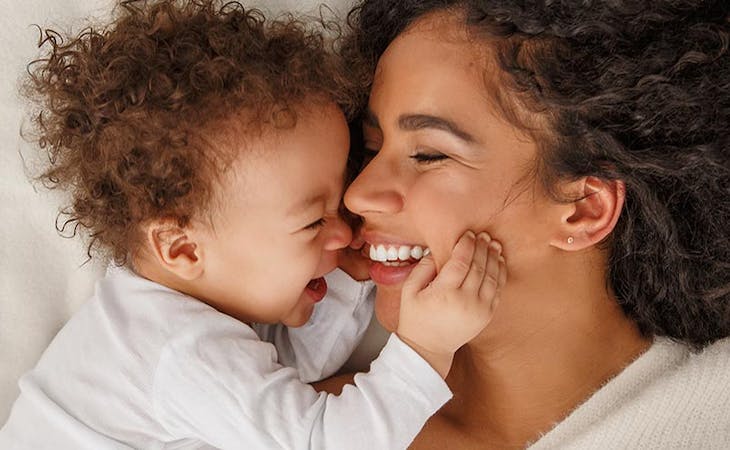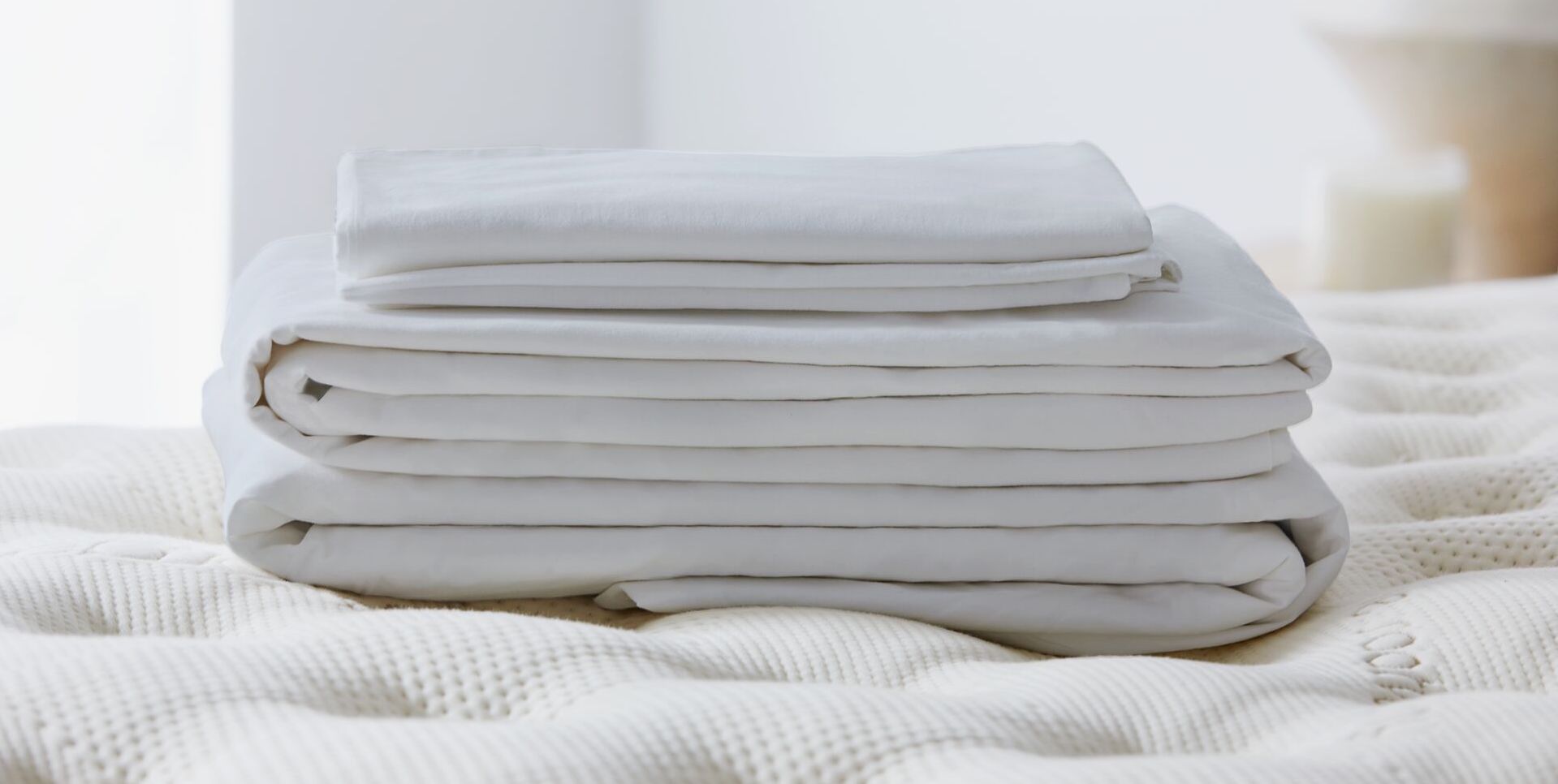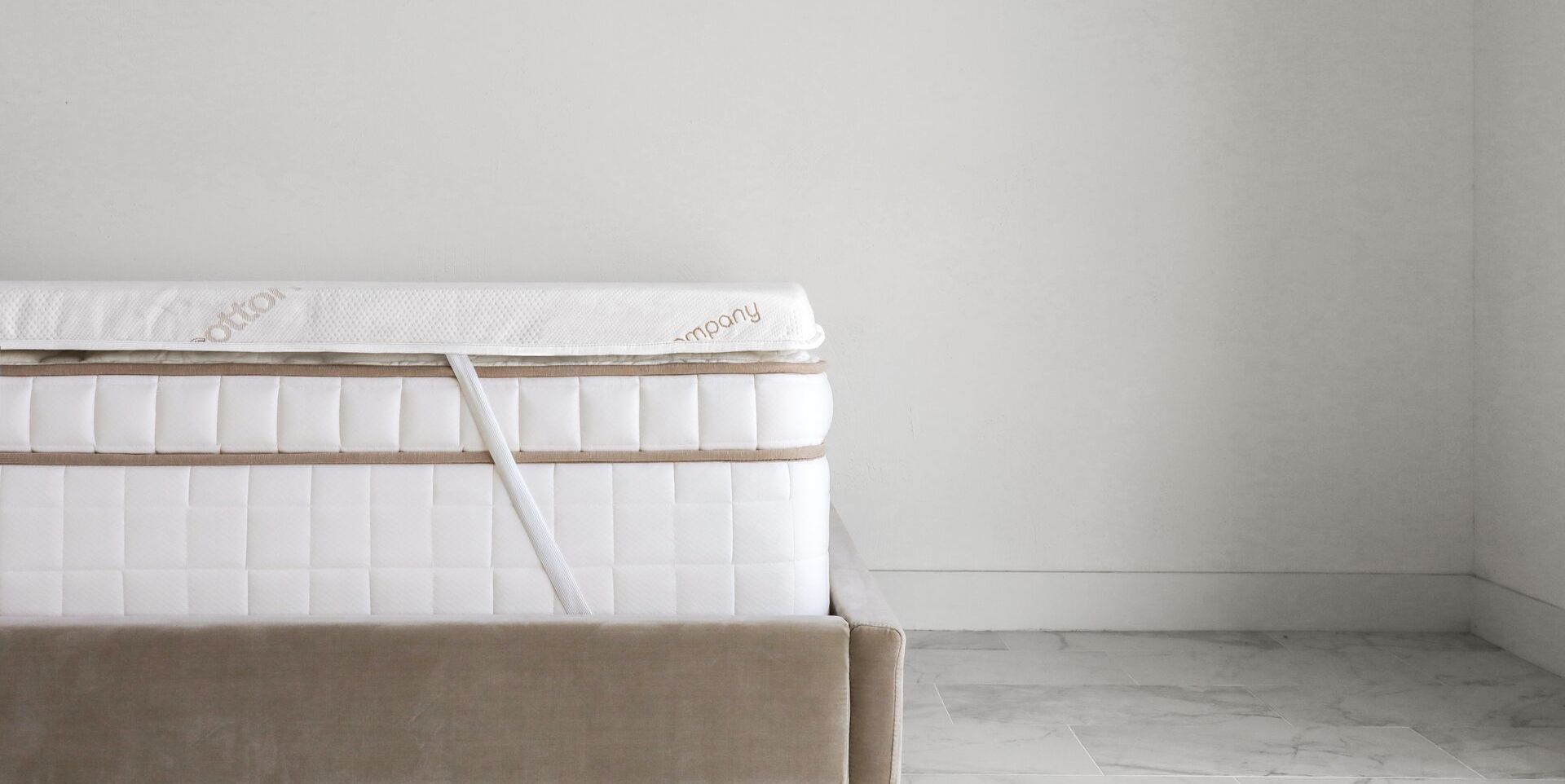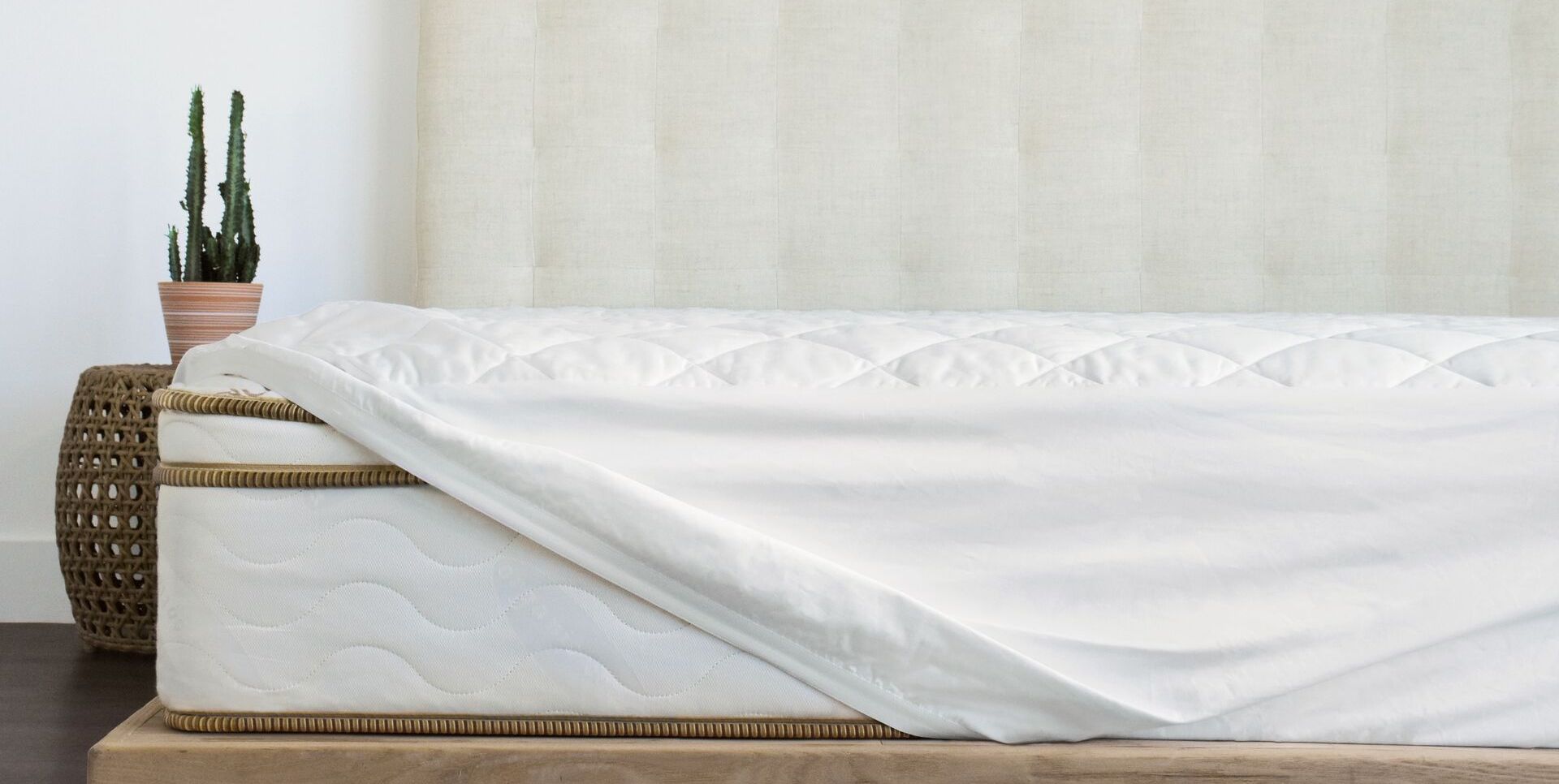It’s no surprise that on top of the joy that comes with being a new mother comes something not as exciting: sleep deprivation. Because babies are born with no real sense of night and day, long nights are practically a requirement of early motherhood. And while we don’t want to be the bearers of bad news, a complete lack of sleep isn’t the only slumber-related issue that you’ll face after having a baby.
So what else can new mamas expect when it comes to their shuteye in the months after birth—and how can you cope? Here, a look at four common sleep issues new moms face, plus how to tackle each. And remember: Babies do eventually sleep through the night (we promise).
You wake up sweating in the middle of the night
Many new mothers wake up in the night after delivery only to find themselves soaking wet. Postpartum night sweats are a common occurrence after having a baby. They’re the result of both the body ridding itself of the excess fluid that accumulates during pregnancy and low levels of estrogen after delivering the placenta, which pumped estrogen and progesterone while you were pregnant.
If this sounds like you, know that soaking through your sheets is temporary. Sweating usually is worst in the weeks immediately after delivery.
Your best bet in that timeframe? Stay cool—with what you’re wearing (breathable pajamas), light blankets, using a fan, or keeping the windows open while you sleep. If you’re worried about your mattress, a topper or mattress pad (ideally one that’s water-resistant) can help too.
You experience nighttime anxiety
Darria Long Gillespie, MD, clinical assistant professor at the University of Tennessee School of Medicine and author of Mom Hacks, calls the anxiety many new moms feel “mommy hyper-vigilance.” “The minute you have a baby you start worrying about eighty thousand things you never would have worried about before,” she says. It’s easy to then criticize yourself and allow worries to spiral, keeping you up when you do get the (rare) chance to sleep.
But Long Gillespie says that feeling anxious is very valid (some research finds 40% of women suffer from postpartum anxiety). If you notice it creeping up at night, try to pinpoint what you’re worried about, whether it’s Sudden Infant Death Syndrome (SIDS) or a tree falling on the house in a storm, she suggests. In a calmer moment, look at your list and put some data behind the points.
That can help you logically understand how realistic your worries are, which can help squash anxiety. “As we go to sleep, our brains lose all sense of perspective and can begin to catastrophize,” she says. Using data or speaking with others (like your partner) about your worries and how reasonable they are can help you sort through them.
Just know: There’s an important distinction between feeling anxious post-baby and Postpartum Obsessive-Compulsive Disorder, which consists of obsessions, compulsions, and fears that get in the way of your day-to-day functioning and your ability to care for your baby. If you think your anxiety could be something more serious, bring it up with your ob-gyn.
Related: A doctor’s advice for sleeping better with anxiety
You don’t have much time for snuggling with your partner
With a baby who’s waking up every two to three hours, it’s normal to feel like you’re coming unwound. That’s why Long Gillespie recommends sleeping in shifts—you take half of the night with the baby, and your partner, another family member, or a night nurse takes the other half. When you’re not “on duty”? You’re in another room where you can’t hear the baby—and you’re able to get four or five hours of sleep, which means you’re getting full, restorative sleep cycles, she says.
Worried that this setup will be a bummer for your relationship? Remember: It’s necessary for your wellbeing and overall sleep health and will benefit both of you in the long run. “Sleep deprivation is a form of torture—they use it to break spies,” says Long Gillespie.
If you’re missing bedtime snuggles or sharing a bed, try to find time for you and your partner to spend together before bed, maybe in the hour before you hit the pillow when baby has already gone down. (Get answers to your most common questions about sleep after maternity leave.)
You have to learn to embrace naps
Never been a napper? With a baby who doesn’t know the difference between day and night, you’re going to want to follow that tried and true advice of sleep when the baby sleeps. Of course, that’s easier said than done when it’s noon and you’re not used to sleeping during the day.
Long Gillespie suggests a few things. One, whenever and wherever you nap, try to replicate your sleep environment. If you use a white noise machine to sleep at night, use it for your nap. Sleep with a particular pillow? Use it for your nap if you can as well.
And always aim to make the room dark, quiet, and cool—the ideal sleeping environment. From there, you could aim for what Long Gillespie calls a high-octane nap, which is about 20 minutes. But don’t be afraid to sleep for 90 minutes, which will allow you to get through a full sleep cycle.
Find your mind racing midday? Keep a journal by your bedside—something Long Gillespie calls a “worry lockbox”—and dump your anxieties in your notebook for 30 seconds or so before you sleep. This can help you empty your brain, so to speak, allowing rest to come more easily.
Having a C-section can make it difficult to get sleep for a variety of reasons. Here’s the best way to sleep after a C-section.







